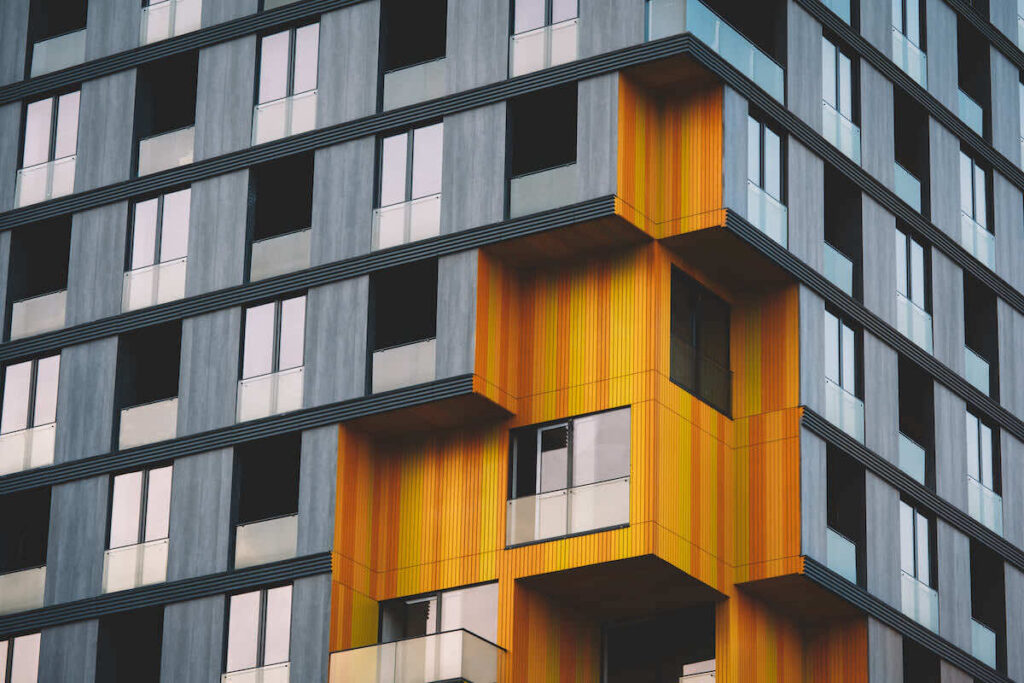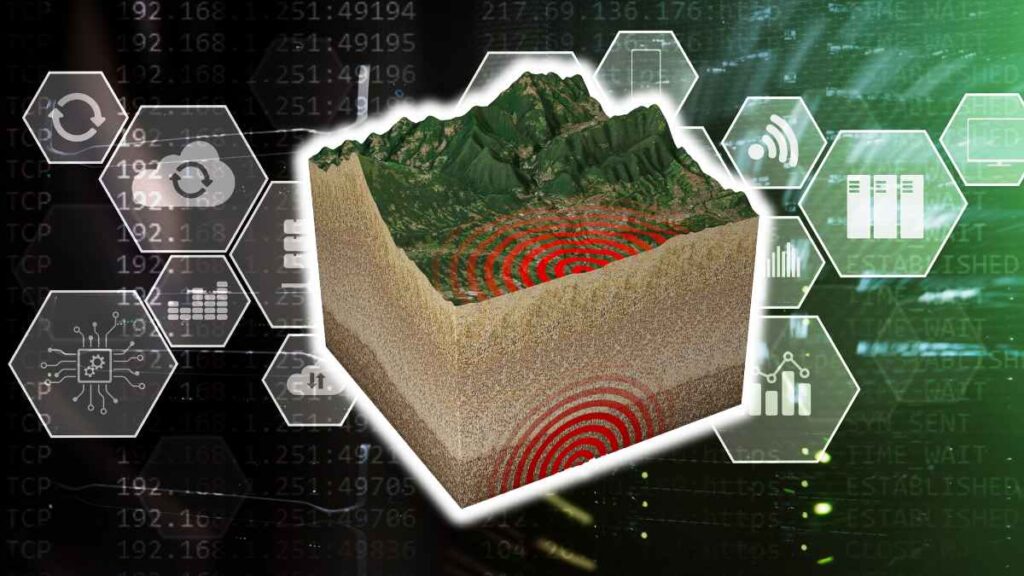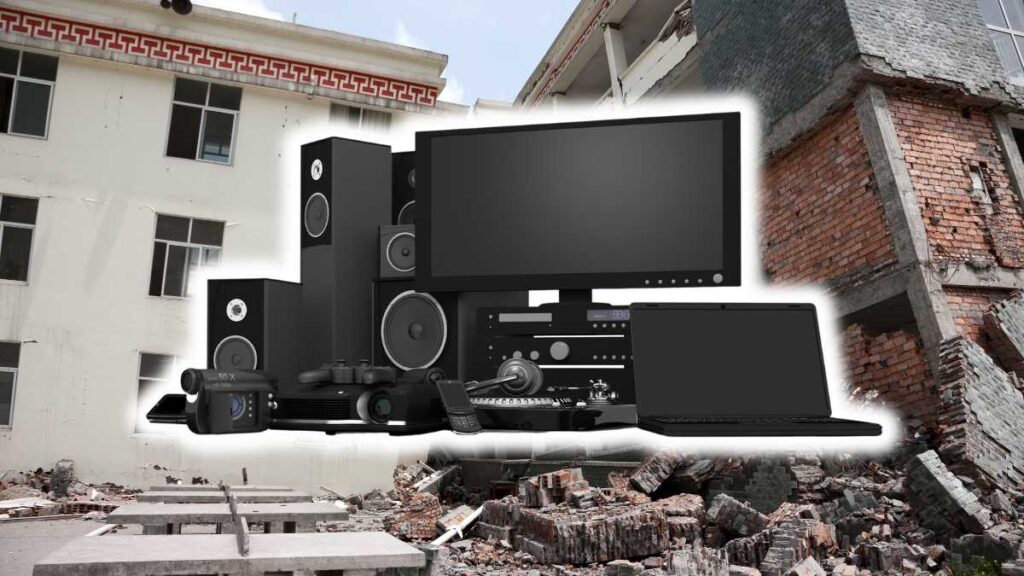Earthquakes can cause devastating damage to buildings, homes, and infrastructure, aside from risk of loss of life. Knowing how to protect yourself and those around you is essential during an earthquake, especially if you stay in a high-rise building such as a condominium.
High-rise condominiums, or apartment buildings or towers, are typically taller than six stories and can be found in urban areas. They offer many conveniences, such as access to public transportation, shopping, and entertainment. However, when an earthquake strikes, these buildings can become hazardous places.
This article will discuss what you should NOT do during an earthquake if you stay in a high-rise building like a condominium. By following these guidelines, you can help ensure your safety and the safety of others around you.
Contents
Toggle1. Do not use the elevator
One of the most important things to remember during an earthquake is to avoid using the elevator. This is especially true if you are in a high-rise condominium. When the ground shakes, elevators can malfunction, leaving you trapped inside. If you are on a high floor, you may not be able to get out for a long time, which can be very dangerous if there are gas leaks or fires in the building.
Instead of using the elevator, use the stairs to evacuate the building. If you have mobility issues, find a safe place to wait for help. Make sure to follow the signs and instructions provided by the building management, and try to stay calm.
2. Do not stand near windows
Standing near windows during an earthquake can be extremely dangerous, as shattered glass can cause serious injuries. Even if the glass is tempered, it can still break and send sharp pieces flying. Additionally, windows are often one of the weakest parts of a building during an earthquake and can be more prone to collapse.
Suppose you are in a high-rise condominium during an earthquake. Moving away from windows and seeking shelter under a sturdy table or desk is crucial in that case. Tables or desks can protect from falling debris and offer a barrier against shattered glass.
If you are in a room without furniture, crouch down and cover your head and neck with your hands. This method can protect you from falling debris and potentially reduce the risk of injury.
Finding a corner or a load-bearing wall for extra protection is also essential. These areas can be stronger and more stable during an earthquake and offer additional protection from falling objects.
3. Do not panic
Remaining calm during an earthquake is crucial for your safety and those around you. When we panic, our brains can become overwhelmed, and our decision-making abilities can be impaired. This can lead to poor choices and potentially dangerous situations.
One way to help manage panic is to be prepared ahead of time. Take the time to create an emergency plan with your family or colleagues so that everyone knows what to do in case of an earthquake. Ensure you have emergency supplies, such as a first aid kit, water, and non-perishable food.
During an earthquake, if you start feeling anxious or overwhelmed, take a few deep breaths and focus on the present moment. Remind yourself that earthquakes usually only last for a few seconds or minutes and that the shaking will eventually stop.
It is also essential to follow the instructions of local authorities and building management. They will have the most up-to-date information on the situation and will be able to guide what to do. Listen for announcements and stay informed of any updates or changes to the situation.
READ MORE: 7 steps how to plan and execute earthquake drills for your family
4. Do not stay inside
If the earthquake is severe, evacuating the building and moving to an open space away from buildings, trees, and power lines is essential. If you are in a high-rise condominium, the stairs may be your only option for evacuation. Follow the signs and instructions provided by the building management, and do not use the elevator.
Once outside, stay away from the building and wait for further instructions. If you live in a high-rise condominium, having an evacuation plan and practicing it regularly with your family or roommates is crucial.
It is important not to rush to the ground floor when evacuating, as suggested in suggestion nine below. It is crucial to remember that the priority is to evacuate the building as safely and efficiently as possible rather than reaching the ground floor quickly.
5. Do not use open flames such as candles
If the power goes out during an earthquake, do not use open flames such as candles, as they can cause fires if gas lines are ruptured. Instead, use flashlights or other battery-powered sources of light. If you need a stove or a heater, ensure it is adequately ventilated and away from flammable objects.
6. Do not use your phone
During an earthquake, the cellular networks may become congested, making it difficult to make calls. Instead of calling, send text messages or use social media to communicate with loved ones. Keep your phone charged and have a backup power source, such as a portable charger or extra batteries.
7. Do not use the balcony
During an earthquake, staying away from the balcony in your high-rise condominium is essential. Balconies can collapse or break away from the building, causing severe injury or death. If you are on the balcony when an earthquake occurs, move inside immediately and take cover under a sturdy table or desk.
If you live on a higher floor and do not have access to a balcony, stay away from windows and other potential hazards.
8. Do not block exit paths
Keep exit paths clear if you are in a high-rise condominium during an earthquake. Refrain from trying to gather your belongings or wait for others before evacuating the building. Remember that the priority is to get out of the building as quickly and safely as possible.
If you see debris or obstacles blocking the exit paths, do not try to move them yourself. Instead, alert others and follow the instructions provided by the building management.
9. Do not rush to the ground floor
When an earthquake strikes, it can be tempting to make your way to the ground floor quickly, but it is not always the safest option. Rushing to the ground floor can put you in harm’s way because the lower floors of a high-rise building can be more vulnerable to damage during an earthquake. The building’s construction and surrounding soil conditions can amplify the shaking on lower floors.
Additionally, there may be more hazards to navigate on the ground floor, such as broken glass, debris, and fallen objects. Stairwells may be a safer option as they are designed to withstand earthquake forces and offer a clear path to exit the building. However, taking caution while descending the stairs is essential, as they can be damaged and slippery.
Waiting on a lower landing until the shaking stops can also be a good option if you are on a higher floor. Once the shaking stops, you can continue your evacuation safely and steadily. It is vital to stay alert and aware of your surroundings while evacuating and to follow the guidance of any emergency personnel on the scene.
Rushing to the ground floor during an earthquake is not always the safest option. Instead, it is recommended to evacuate using the stairs and take caution while navigating any hazards. Waiting on a lower landing until the shaking stops can also be a good option if you are on a higher floor.
10. Do not forget to check for gas leaks
After an earthquake, checking for gas leaks in your high-rise condominium is essential. Gas leaks can cause fires or explosions, which can be extremely dangerous in a tall building.
If you smell gas or suspect a gas leak, do not use any electrical switches or light any matches. Instead, turn off the gas supply at the main valve and open all the windows and doors to ventilate the area. Leave the building immediately and call the gas company or emergency services.
Bonus Tip: Do not stand in a doorway
Standing in a doorway during an earthquake is an outdated myth because it is not any safer than other parts of the building and can be more dangerous. Doorways can collapse or swing shut during an earthquake, causing injury or trapping people inside.
The misconception that doorways are a safe place to be during an earthquake likely stems from the fact that doorways are typically located near interior walls, generally considered more robust and more resistant to collapse than exterior walls. However, modern building codes require buildings to be designed to withstand earthquakes, and the strength of interior walls is now comparable to that of exterior walls.
The Federal Emergency Management Agency (FEMA) advises against standing in a doorway during an earthquake, stating that “doorways do not protect you from the most likely source of injury – falling or flying objects.” During an earthquake, the safest thing to do is drop to the ground, take cover under a sturdy table or desk, and hold on until the shaking stops.
It’s important to note that the advice on what to do during an earthquake has evolved as our understanding of earthquake science and building codes has improved. While standing in a doorway may have been considered a safe practice in the past, it is now recognized as a potentially dangerous myth.
Standing in a doorway during an earthquake is an outdated myth debunked by modern earthquake science and building codes. Instead, the best way to protect yourself during an earthquake is to drop to the ground, take cover under a sturdy table or desk, and hold on until the shaking stops.
Conclusion
Knowing what not to do during an earthquake can be just as important as knowing what to do. By following these guidelines, you can help ensure your and your family’s safety in a high-rise condominium during an earthquake. Remember to stay calm, follow the instructions provided by local authorities and building management, and be prepared with an evacuation plan and emergency supplies.
READ MORE:
Bibliography
- FEMA. (2020). Build a Kit. Retrieved from https://www.ready.gov/kit
- American Red Cross. (2021). Emergency Kit Checklist. Retrieved from https://www.redcross.org/get-help/how-to-prepare-for-emergencies/survival-kit-supplies.html
- American Red Cross. (2021). Earthquake Safety. Retrieved from https://www.redcross.org/get-help/how-to-prepare-for-emergencies/types-of-emergencies/earthquake.html
- FEMA. (2020). Earthquake | Personal Cover/Barriers: Do Not Use a Doorway. Retrieved from https://community.fema.gov/ProtectiveActions/s/article/Earthquake-Personal-Cover-Barriers-Do-Not-Use-a-Doorway
- What Should You Do Before, During, and After an Earthquake? https://scienceexchange.caltech.edu/topics/earthquakes/earthquakes-what-to-do
- Stay Safe During an Earthquake | Natural Disasters and Severe Weather – CDC. https://www.cdc.gov/disasters/earthquakes/during.html
- Precautions of Earthquake: List of Do’s and Don’ts During Earthquake. https://www.godigit.com/guides/natural-disasters/dos-and-donts-during-earthquake
- What NOT to do during an earthquake – UW Emergency Management. https://www.washington.edu/uwem/preparedness/know-your-hazards/earthquake/what-not-to-do-during-an-earthquake
- What should I NOT do during an earthquake? – USGS. https://www.usgs.gov/faqs/what-should-i-not-do-during-earthquake




